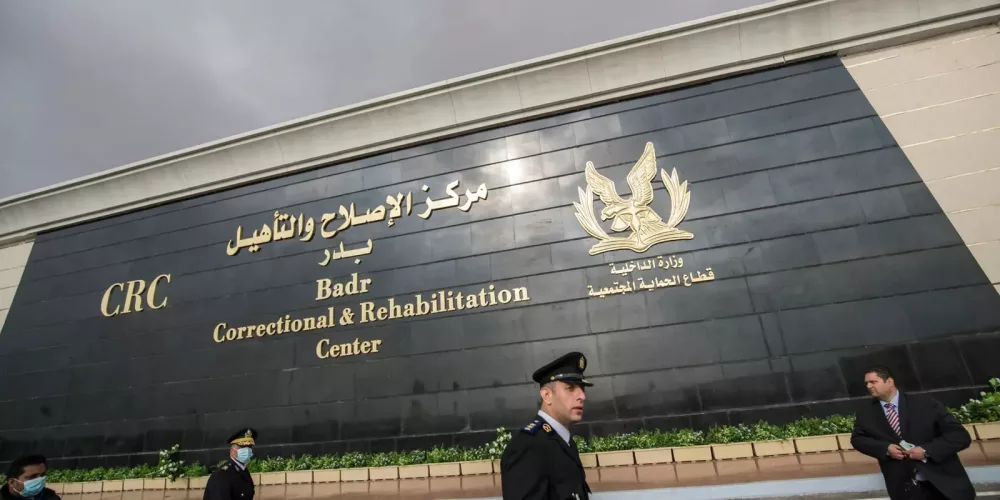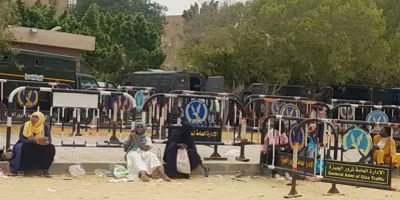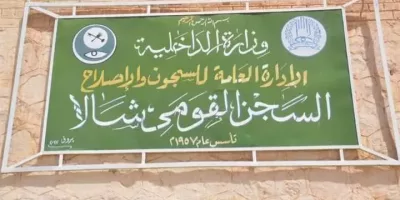The Committee for Justice “CFJ” has documented a severe and escalating pattern of human rights violations against political detainees held in Sector 2 of Badr 3 Prison over a continuous period of eleven days. These violations include direct threats, ongoing hunger strikes, and multiple suicide attempts amid a critical deterioration in the physical and psychological health of many prisoners, all occurring under a climate of official silence.
Security Threats and Familial Coercion
According to information received by the Committee, the hunger strike inside the sector persists. The situation escalated on July 19, when three senior officials from the National Security Agency, including the Deputy Head of the Agency, met with detainees Amin Al-Sirfi and Mohamed Al-Beltagy. During this meeting, they issued explicit threats to arrest female family members and to execute death sentences against detainees should the hunger strike not be terminated within 48 hours.
One official reportedly stated:
“We have external support and backing to do whatever we want with you. You are merely files to be forgotten after fifteen days. You have no rights here.”
In the days that followed, these threatening messages were repeated against other prominent political detainees, including:
Khairat El-Shater (July 21)
Amr Al-Aqid (July 22)
Jihad Al-Haddad (July 24), where the threat was described as more severe, with a security official reportedly declaring:
“You make a mistake with us once, and then bullets will speak.”
Mass Suicide Attempts and Widespread Health Deterioration
Following these threats, Dr. Mustafa El-Ghoneimy attempted suicide by ingesting five strips of medication while shouting, “We will not be intimidated, you oppressors!” He was transferred to intensive care in critical condition, followed minutes later by detainee Hani Shaaban.
Ambassador Refaat Al-Tahatawy was hospitalized due to severe hypoglycemia (blood sugar level of 39) after refusing intravenous treatment. Similar critical health episodes occurred in the following days for Mohamed Al-Beltagy and Asaad Al-Sheikha due to sharp drops in blood pressure and blood sugar levels.
On July 29, Saad Aliwa collapsed from extreme exhaustion. Meanwhile, the spokesperson of the Muslim Brotherhood, Ahmed Aref, suffered a blood sugar drop to 33, persistently stating in a trembling voice:
“I will continue my hunger strike until the world knows what is happening in Sector 2… Life is not worth living if we remain silent about your crimes.”
Despite continuous protests, chanting, and banging on cell doors by detainees, the prison administration did not intervene until 65-year-old Abdel-Salam Al-Meligi attempted suicide. He was transferred to the hospital restrained to his bed and injected with morphine—a treatment previously administered to Dr. Abdullah Shehata after his suicide attempt on July 3 and detainee Reda Abu El-Gheit, who remains in critical condition since attempting suicide inside the courtroom on July 12.
On July 30, Dr. Hassan Al-Barnes attempted suicide by cutting his veins and was taken to the prison medical center. No updates on his medical status are currently available.
Thirty-Five Hunger Strikers, Fifteen in Critical Condition
The Committee confirmed that the number of detainees on hunger strike in Sector 2 of Badr 3 Prison has reached 35, including 15 in extremely critical health conditions. Among the most prominent are:
Abdelrahman Al-Barr
Mohamed Saad Aliwa
Asaad Al-Sheikha
Refaat Al-Tahatawy
Amin Al-Sirfi
Bassem Ouda
Osama Morsi
Osama Yassin
Ahmed Aref
Khaled Al-Azhari
According to sources, several prominent detainees, including Al-Tahatawy, Al-Sheikha, Al-Barnes, Sayyed Heikal, Abdelrahman Al-Barr, and Safwat Higazy, have announced plans to undertake collective suicide attempts starting August 1, should their fundamental demands remain unmet. These demands include:
The right to family visitation
Exposure to sunlight
Access to adequate medical care
An end to solitary confinement and ongoing threats
The detainees have also warned of escalating protests if security forces approach their relatives during visits, amid continued policies of collective punishment.
Systematic Violations Constituting Crimes Against Humanity
The Committee for Justice declared in its statement that the ongoing abuses inside Badr 3 Prison no longer constitute isolated incidents but have evolved into a systematic pattern of violations amounting to crimes against humanity, including:
Psychological torture
Deliberate medical neglect
Severe solitary confinement
Deprivation of fundamental rightsCFJ reminded that these practices represent clear violations of the Egyptian Constitution and international legal instruments ratified by Egypt, primarily the Convention Against Torture and the International Covenant on Civil and Political Rights.
Calls for Urgent Investigation and International Intervention
CFJ holds the Egyptian authorities—including the Ministry of Interior, the National Security Agency, and the Public Prosecutor—fully accountable for the situation inside Badr Prison. It demands:
Immediate and independent investigations
Transfer of critically ill detainees to civilian hospitals
An end to solitary confinement
Restoration of detainees’ basic rights, especially visitation and medical care
CFJ urgently calls upon UN mechanisms and international human rights organizations to intervene promptly and exert pressure on the Egyptian government to permit independent access to Badr 3 Prison and initiate transparent international investigations into the documented serious violations.
CFJ emphasized that the ongoing international silence concerning abuses in Egyptian prisons is no longer acceptable. It warned that continued neglect of these grave violations will inevitably lead to a humanitarian catastrophe and that the possibility of collective suicide has become an imminent and undeniable reality amid the persistent deterioration inside Badr 3 Prison.






